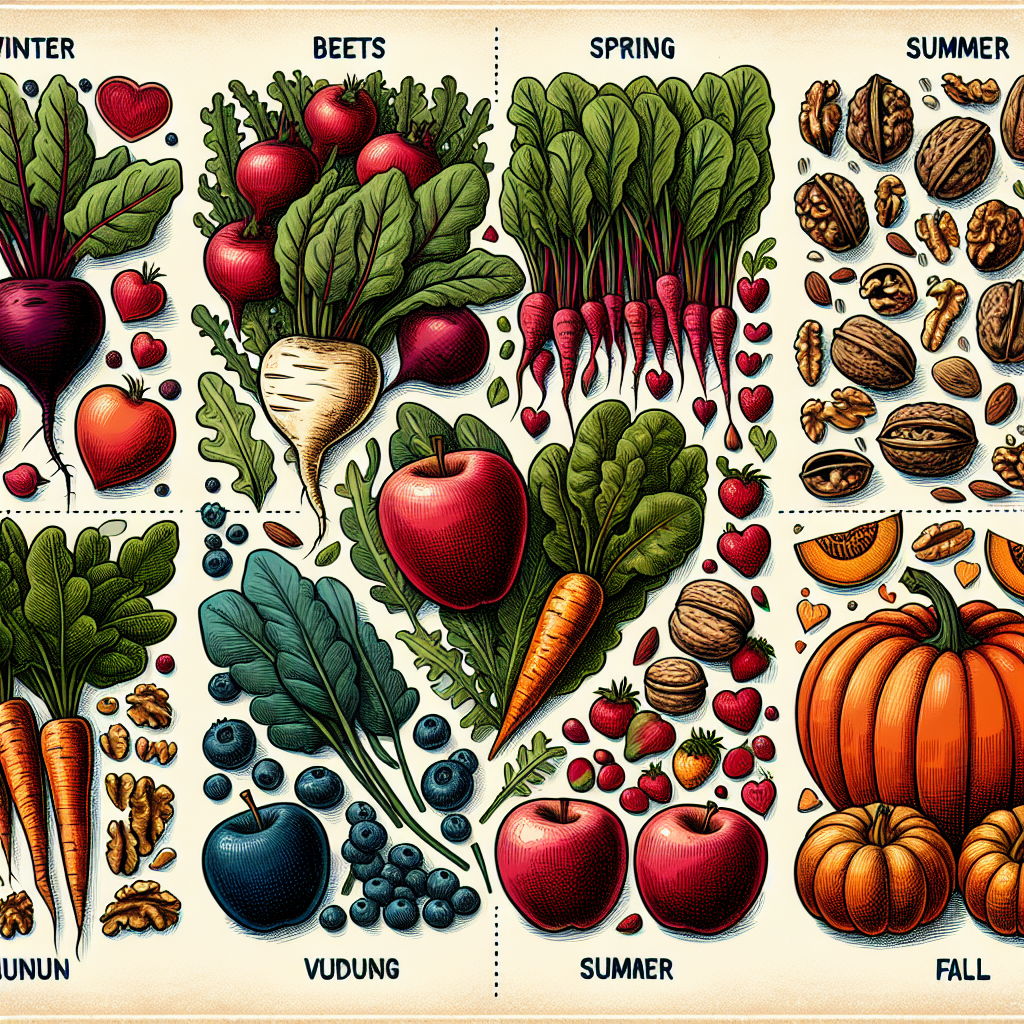The rhythm of the seasons paints our world in a variety of shades and tones, each bringing its unique blend of beauty and challenges. While we often associate seasonal changes with wardrobe swaps and outdoor activities, their influence extends far beyond the surface, reaching deep into the core of our wellbeing—our cardiovascular health. In this comprehensive exploration, we’ll delve into the ways seasonal shifts impact our heart and vascular system, weaving in insights from experts and the latest research, and offering practical strategies to safeguard our cardiovascular wellness throughout the year.
Understanding the Seasonal Influence on Heart Health
The human body is a marvel of adaptation, constantly fine-tuning its internal environment to align with external changes. Seasonal variations in temperature, daylight hours, and weather conditions prompt physiological responses that can significantly affect our cardiovascular system. For instance, cold weather can cause blood vessels to narrow, increasing blood pressure and demanding more effort from the heart. Conversely, the heat of summer may lead to vasodilation, potentially dropping blood pressure and challenging our fluid and electrolyte balance.
The Winter Challenge
Winter is often the spotlight season when discussing cardiovascular strain. The combination of colder temperatures, shorter days, and less physical activity can take a toll on heart health. Studies have shown an increased incidence of heart attacks and strokes during the colder months. The reasons are multifaceted, including heightened blood pressure due to constricted blood vessels, increased clotting risk, and the body’s intensified metabolic demands to maintain warmth. For those with existing cardiovascular conditions, these challenges underscore the importance of vigilant management and adherence to treatment plans.
Summer’s Subtle Risks
While winter’s risks are more overt, summer’s influence on the cardiovascular system is subtler but no less significant. High temperatures can lead to dehydration and electrolyte imbalances, potentially triggering heart palpitations and exacerbating conditions like heart failure. Moreover, the allure of outdoor activities in the warm weather can sometimes lead to overexertion, especially in individuals who might not be accustomed to regular exercise.
For a detailed understanding of the cardiovascular system and how it operates, visit Avix Health’s Cardiovascular Health page.
Strategies for Seasonal Cardiovascular Care
Adapting your lifestyle to the changing seasons is crucial for maintaining optimal cardiovascular health. Here are several strategies tailored to the rhythms of the year:
Embrace Seasonal Nutrition
Each season offers a bounty of natural foods that can support cardiovascular health. For example, winter root vegetables and hearty legumes can provide the nutrients and energy needed in colder months. In contrast, summer fruits and vegetables, high in antioxidants and hydration, are ideal for combating oxidative stress and maintaining fluid balance.
To delve deeper into how diet influences your heart, consider reading about Managing Lipid Levels Through Diet and Lifestyle.
Moderate Physical Activity
Staying active year-round is crucial, but the type and intensity of exercise might vary with the seasons. Winter may call for indoor workouts or bundled-up brisk walks, while summer might invite swimming or early morning jogs to avoid the midday heat. Remember to listen to your body and adjust your physical activity accordingly.
For beginners looking to engage in cardiovascular fitness, check out Engaging in Cardiovascular Fitness: A Guide for Beginners.
Manage Seasonal Affective Disorder (SAD)
Reduced daylight in the winter months can lead to SAD, a type of depression that can indirectly affect heart health by altering stress hormones and leading to unhealthy coping mechanisms like overeating or inactivity. Light therapy, counseling, and maintaining a regular schedule can help mitigate these effects.
Stay Hydrated and Mindful of Heat
Hydration is a year-round priority but becomes especially critical in the summer heat. Drinking plenty of water and replenishing electrolytes after sweating can help maintain cardiovascular stability.
Regular Medical Check-Ups
Regular check-ups with your healthcare provider can help monitor and manage cardiovascular health effectively. This is particularly important for catching any seasonal variations that might require adjustments in medication or lifestyle interventions.
External Resources for Seasonal Cardiovascular Health
For those who wish to explore this topic further, here are some niche and specific resources that provide additional insight into the impact of seasonal changes on cardiovascular health:
-
Seasonal Variation in Blood Pressure – A study published by the American Heart Association investigating how blood pressure may fluctuate with the seasons.
-
Cold Weather and Cardiovascular Disease – This page by the National Heart, Lung, and Blood Institute offers guidance on protecting heart health during colder months.
-
Heat and Heart Disease – The Centers for Disease Control and Prevention discuss the risks of heart disease in extreme heat and how to stay safe.
-
Managing Seasonal Affective Disorder – A comprehensive resource by the National Institute of Mental Health on coping with SAD and its implications for overall health.
-
Hydration and Heart Health – The American Heart Association explains the importance of hydration for heart function and overall health.
Incorporating these strategies into your routine and seeking out high-quality information can empower you to navigate the seasons with a heart that’s as resilient as it is robust.
Conclusion
Seasonal changes demand attention and adaptation, not just in our daily lives but in the care and maintenance of our cardiovascular health. By understanding the unique challenges and opportunities each season presents, we can proactively manage our heart health and thrive throughout the year. Whether it’s adjusting our diet, exercise routine, or staying vigilant with medical check-ups, the key is to remain attuned to our body’s signals and the environment’s cues. With thoughtful planning and informed choices, we can ensure that our heart beats strong, no matter the season.



